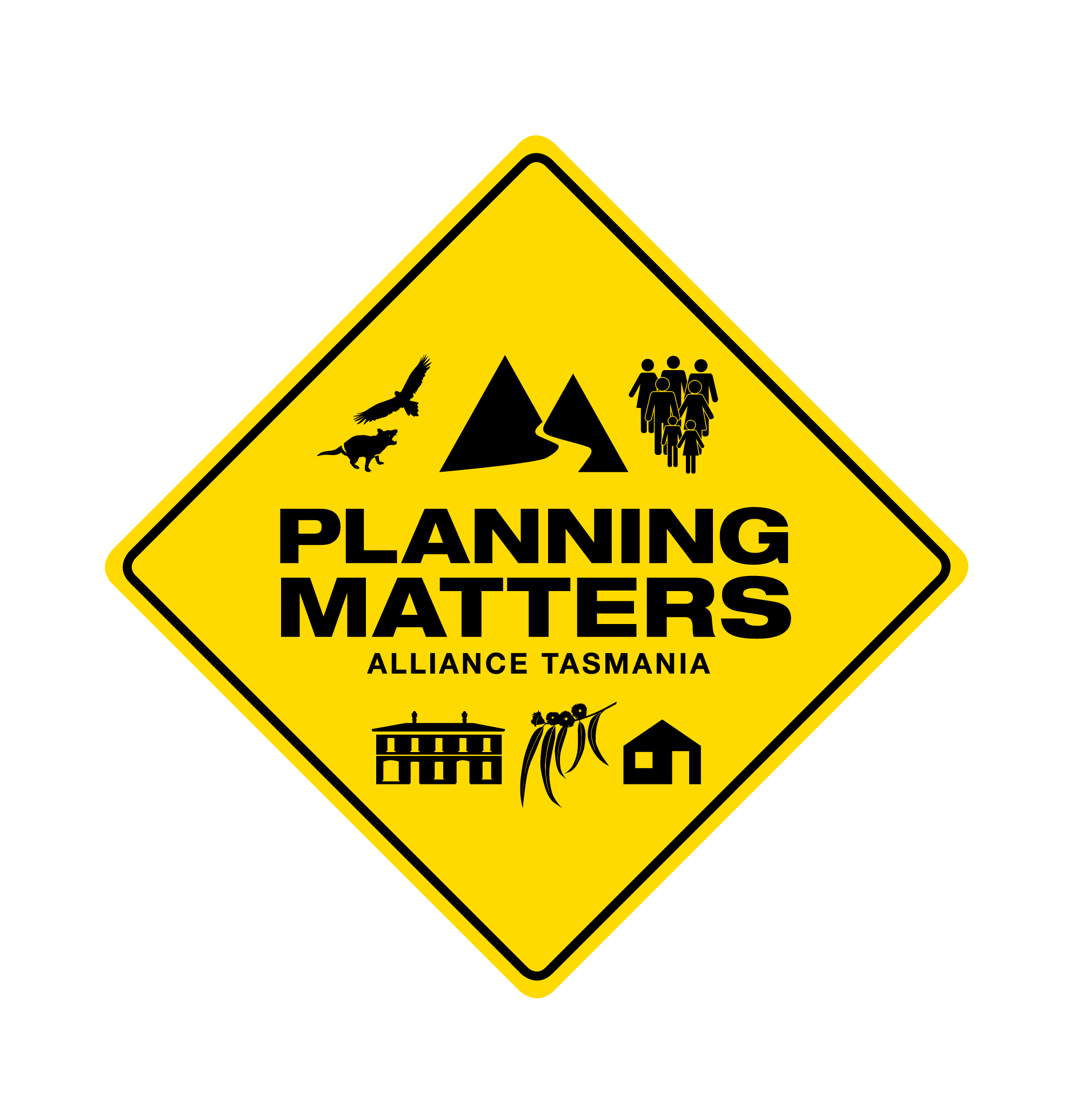- Submission
Submission on the Proposed Amendments to Land Use Planning & Approvals Act 1993
Media Enquiries
Sophie Underwood
PMAT State Director
sophie_underwood@hotmail.com
0407 501 999
Please share:
Background
Thank you for sending PMAT the information pack regarding these important proposed changes to LUPAA 1993 (the Act) and for accepting this PMAT representation about the proposed amendments (the Bill).
Thank you also for understanding that PMAT is largely volunteer run and that the PMAT President, PMAT Vice President and State Coordinator should ideally all be consulted and informed by the Planning Policy Unit on other planning changes going forward.
General Comments
Social licence is essential: PMAT has almost 70 alliance groups and our many thousands of members are committed to visionary, strategic planning, transparency and public involvement in land use planning. We consider the public voice is necessary and fundamental to allow development to proceed with social licence.
Targeted consultation: We are very concerned about “targeted consultation” especially just prior to Christmas and the holiday season. Many stakeholders, taxpayers and ratepayers with an interest in land use planning may have been locked out by this timing and process, noting that advertising more widely (beyond the statutory requirements) would enhance opportunities for public involvement.
Increased Ministerial powers: While some streamlining of the Act is possibly justified, the overall impact of the proposed changes is to increase the say of the Minister, government and the development lobby. We consider this is to the detriment of the general public, natural and cultural heritage, strategic planning and the liveability of our neighbourhoods and communities.
Poor planning outcomes: In our view, current planning rules and the provisions of the IPS are not delivering good planning outcomes. They are not in line with community expectations, and unfortunately, the SPPs continue this with no rectification.
Interim Planning Directive 4: We are especially disappointed that from 22 Feb 2021, the Interim Planning Directive No 4 will enable early adoption of some of the SPPs. This is a very significant part of the proposed amendments to the Act on which we are commenting in this paper. As there has been no consultation about this Ministerial Directive, PMAT considers that this deployment approach shows a callous disregard for feedback from the public received in 2016 during TPC hearings on the SPPs. We understand that over 300 representations were made and over 3000 issues were raised during public consultation around the SPPs. Many of those TPC recommendations are still awaiting action. We can supply a paper on this.
Interim Planning Directive 4: We understand the IPD process is for the planning directive to be approved by TPC. PMAT asks how can this be? In reality, what the public told the TPC in 2016, appears to be ignored by the government.
Public involvement: The public is exhausted by all the myriad changes, and professional planners must be in a similar position. Planning authorities and the TPC have huge responsibility and must be better resourced and well trained to undertake these planning reforms along with the jobs of strategic and statutory planning.
EDO submission is supported: PMAT has read the EDO submission and fully supports their 12 recommendations which we consider will improve the proposed amendments.
Development at any cost: These proposed amendments to the Act appear to facilitate development approvals and to further tilt the planning system in favour of the development lobby.
RMPS and LUPAA 93: PMAT does not agree that the proposed changes carry forward the Schedules 1 and 2 of LUPAA 93 nor the RMPS.
Tasmania a world leader in good planning?: PMAT would like to see Tasmania become a world leader in strategic, sustainable, visionary community endorsed planning. This can only preserve and enhance the internationally recognised values for which Tasmania is justly famous. Right now, we are witnessing the state’s special qualities trashed by inadequate, “develop at all costs” development approvals, based on provisions in our interim planning schemes, and continual granting of exemptions from planning created by recent planning changes. One senior planner has publicly stated “it is a race to the bottom. No-one known to this planner would ever live in the units they are forced to approve”.
Integrated planning is sought: It is grossly unfortunate that in the push to make planning “simpler, faster, fairer and cheaper”, integrated planning across relevant state agencies has been lost. Splitting off fire safety, stormwater, parking, and affordable housing from planning is extremely short sighted. It will not deliver simpler or cheaper planning and is confusing for developers.
PMAT’s Key Concerns
Our comments below are based on the Information Pack provided by the Planning Policy Unit, Department of Justice.
More Submissions

Scope/Content and Structure of the draft Tasmanian Planning Policies (TPPs)
While PMAT’s preference is for the development of State Policies (SPs) rather than TPPs – as SPs provide for a whole of Government approach and

PMAT Submission: Housing Land Supply Amendment Bill 2021
While the Tasmanian Government is arguing that the crisis in availability of social and affordable housing can be addressed– at least in part – through

PMAT Submission: GHD SURVEY Residential Standards Review
The standards that are resulting in for example in an unreasonable impact on residential character and amenity and remove a right of say over what

PMAT Submission: Tasmanian Civil and Administrative Tribunal Bill
PMAT believes that an effective land use planning system is one which provides for economic development that respects our local amenity and character, safeguards our

Support Us
Receive News & Updates from PMAT
Stay informed on what’s happening locally and statewide within Tasmania, and join our community in advocating to protect Tasmania’s future.